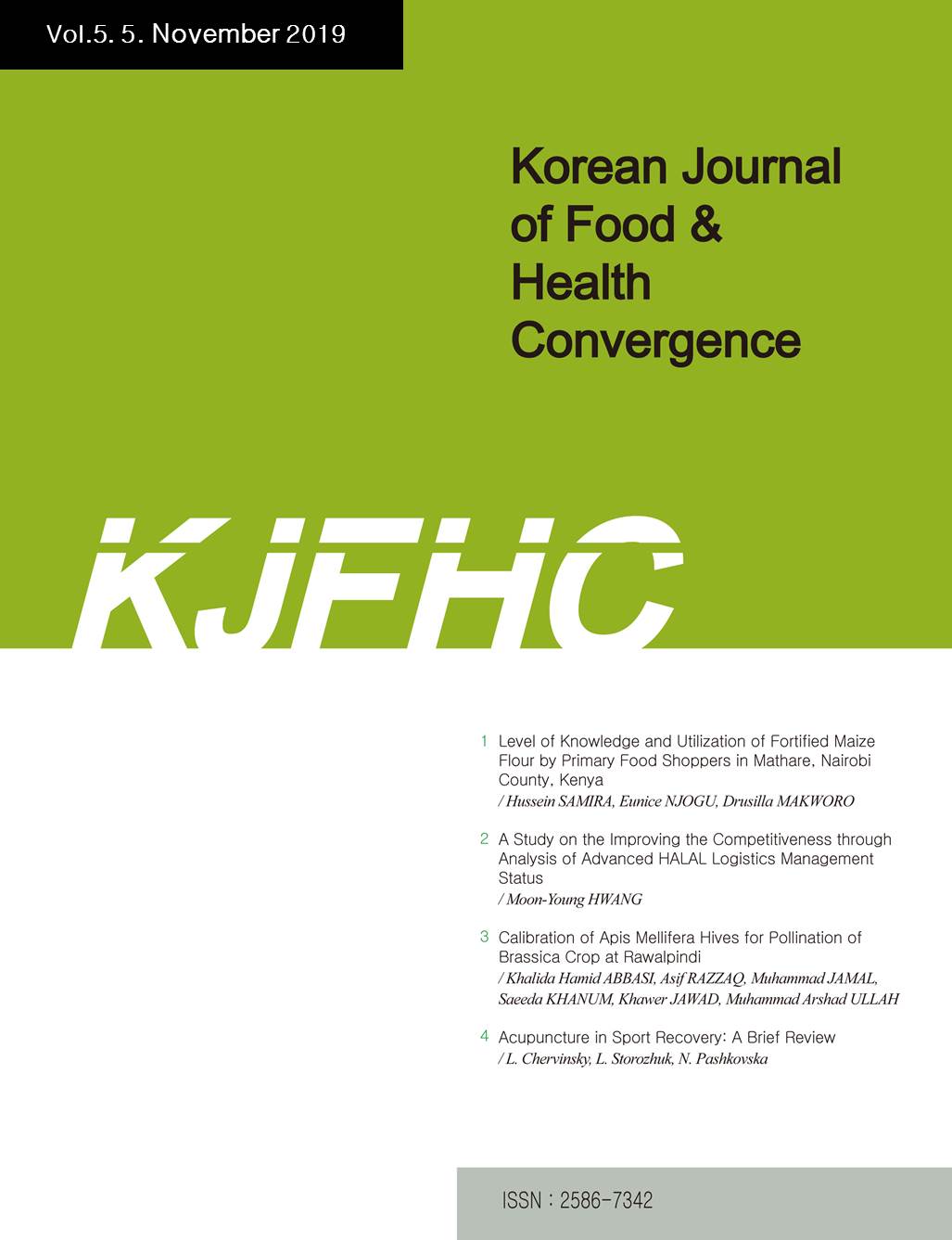 E-ISSN : 2586-7342
E-ISSN : 2586-7342
Impact of Blood Orange Aromatherapy on Appetite Suppression in Obese Women
Yu-Jeong KWON (Eulji University)
Eun-Min KIM (Eulji University)
Ji-Won YU (Eulji University)
Ga-Young LEE (Eulji University)
Chae-Rin KWAK (Eulji University)
So-Min PARK (Eulji University)
Ye-Won LIM (Eulji University)
Hyun-Ah LIM (Eulji University)
Ha-Eun CHOI (Eulji University)
Gyu-Ri KIM (Eulji University)
Abstract
The objective of this study was to identify preferences for Neurocosmetics designed to prevent appetite stimulation among obese women in Korea. The participants consisted of 20 postpartum obese women, and the experiment lasted approximately four weeks. The experimental procedure involved placing the perfume in a bottle and instructing participants to smell the fragrance from a distance of 5 cm for three seconds at five-minute intervals. Surveys were administered both before and after the experiment, with participants providing their responses independently. A comparison of the initial appetite score of 4.70 on Day 1 and the reduced score of 4.16 one hour after the experiment on Day 7 indicates a general decrease in appetite. This finding suggests that the aroma of the blood orange blend may help suppress appetite. This study also verified the stress relief and appetite control effects of inhaling the natural blood orange scent through the Stress Response Inventory and an appetite evaluation table, which served as objective experimental indicators. In conclusion, the findings of this study suggest that the use of natural fragrances, such as the blood orange blend, could provide a foundation for developing Neurocosmetics that induce positive physiological and emotional responses related to appetite control.
- keywords
- Neurocosmetics, Female Obesity, Aromatherapy, Appetite Suppression
- 0Downloaded
- 86Viewed
- 0KCI Citations
- 0WOS Citations
